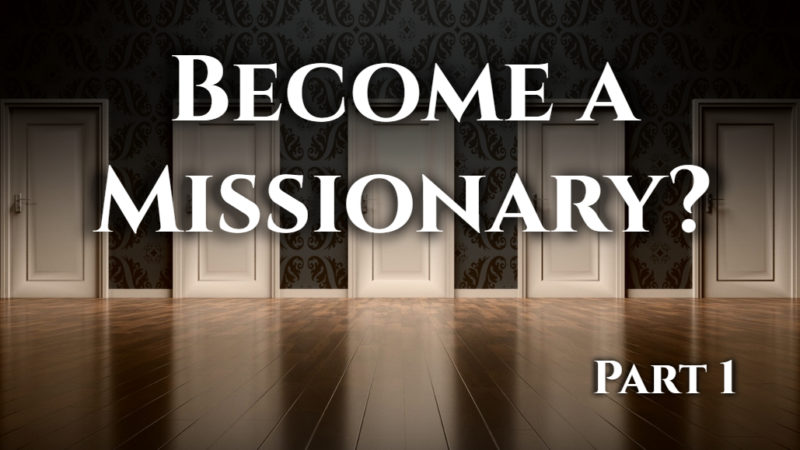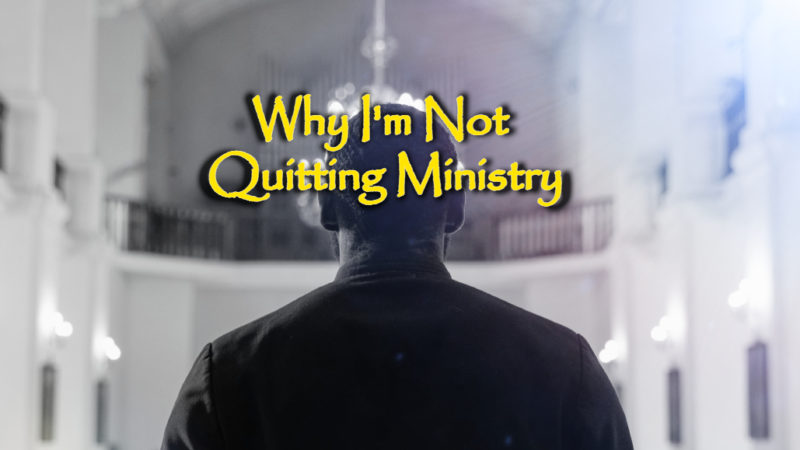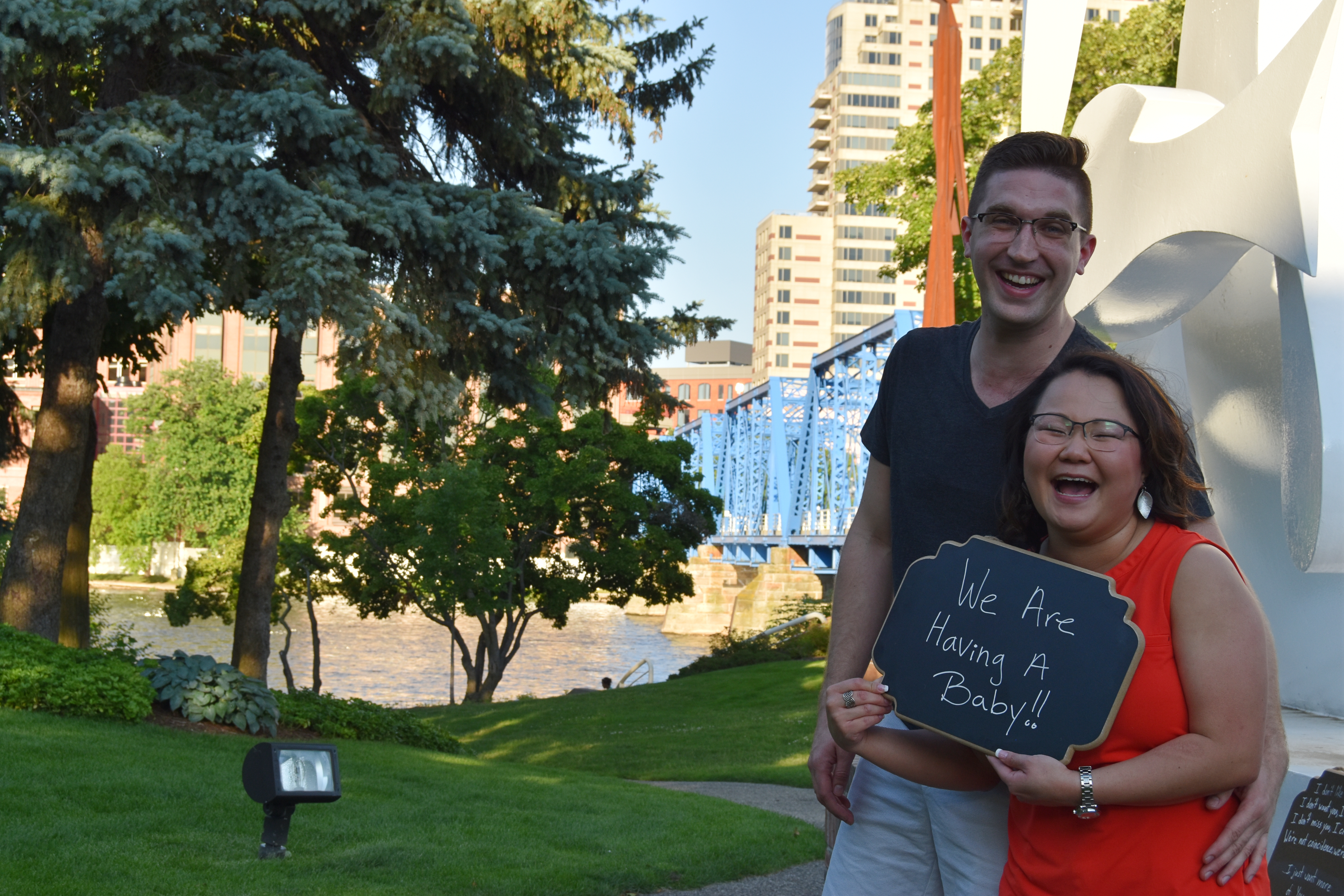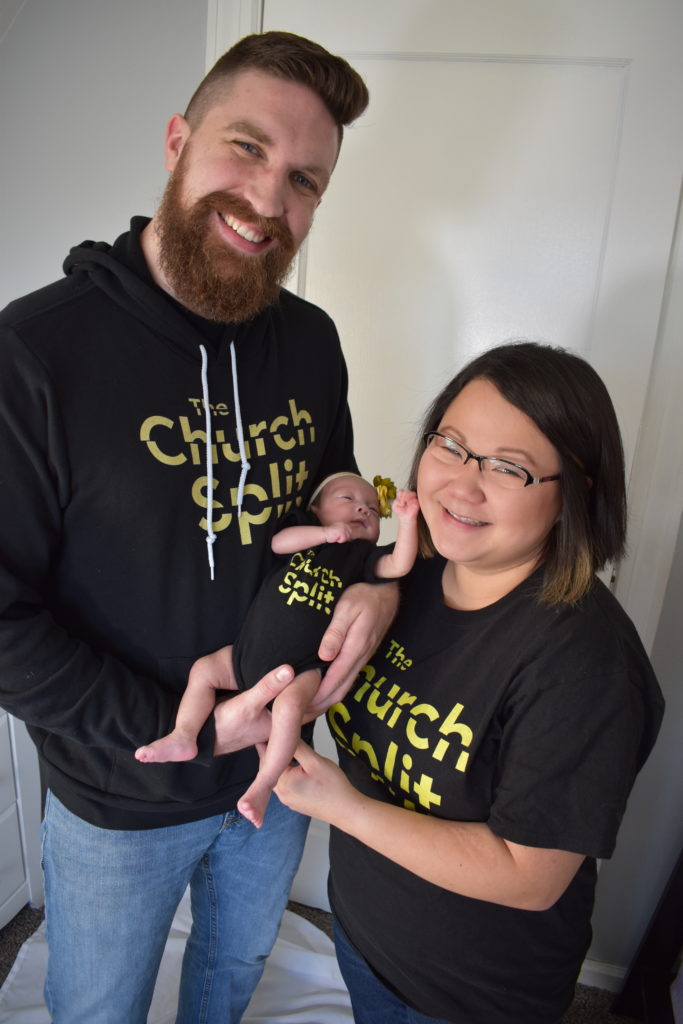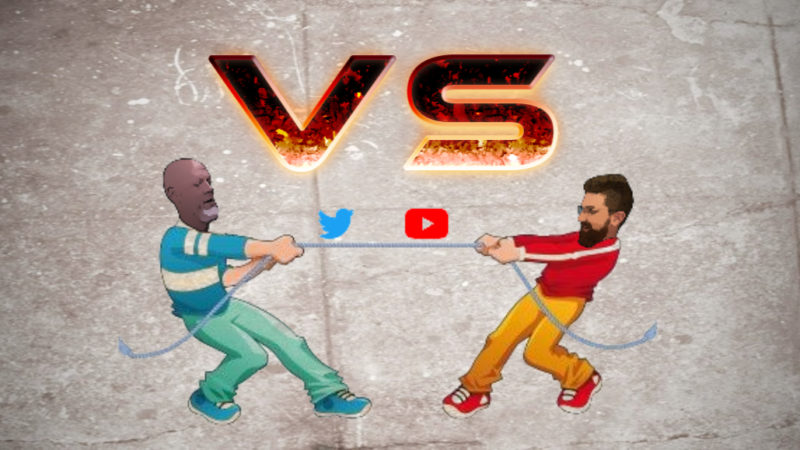By Chris Stockman and Will Hess
I (Chris Stockman) wrote in a previous article about how I found apologetics. I was only in high school. There are a good many others like me that found apologetics at a young age. Also like me, and Will, they eventually “graduated” from the work of popular apologists like J Warner Wallace, Frank Turek, Sean or Josh McDowell, and now almost exclusively study scholars on specific questions within sub-disciplines of apologetics.
These individuals I call the young guns in apologetics (a more generous use of “young” in Will’s case), and you’ll frequently see them online in different discussion groups. Very knowledgeable on certain topics, despite lacking formal training on these issues. We are “autodidacts”; if there is a topic we want to know more on, we will study it for ourselves. We’ll read the primary sources that the popular apologists draw on in their work, and be able to speak confidently on complicated topics in theology and philosophy. By any other label, we would be competent apologists.
However, there are many of us whose young age and quick study has led to losing sight of the goal of apologetics. These are the cage-stagers. They are bright, but are doing more harm than good at the moment. Tearing down pop apologists (Frank Turek is the preferred punching bag these days) is spare-time enjoyment. Now, Turek isn’t my favorite, but he’s a darn good apologist who has had the career and impact that his detractors will never have. Will and I have had several interactions with these cage-stagers, and have finally had enough, which prompts us to drop this.
This is a declaration of war on the young apologists.
What They Intended
First, what are their intentions? They spend a lot of time criticizing the work of well-known figures. What they want to do is point out flaws in popular arguments (like the moral argument, or minimal facts argument for the resurrection) in order to address them and make the argument stronger and present a stronger Christianity. They’re not merely on a seek and destroy crusade against apologetics. But, in the words of Ultron, “I know you mean well. You just didn’t think it through.”
The problem is 1) some of them do this far too often, and 2) some of them, if you didn’t know them from Adam, would be confused for the village atheist with what their critiques are as well as how incessant they are. Here, I am not saying not to criticize wrong ideas. Of course, if an apologist like Frank Turek or Michael Licona is incorrect on something, it should be (graciously) pointed out. But, by who? Twenty-something’s with YouTube channels that nobody watches? Even still, that does not call for commenting on everything a popular figure does and criticizing it as if you were giving feedback on an academic article, or chiding it for not drawing on your favorite philosopher’s monograph that costs $100 used. At that point it just becomes friendly fire. Someone who spends so much time criticizing pop apologists has, oddly enough, made their bed with the skeptics.
What They Are Saying
Below are a couple examples of the sorts of things these individuals actually say in italics. These people are actually serious; they’re not joking.
“But there are countless examples who are less popular than Frank Turek, but are better at defending the Christian faith. Joshua Rasmussen, Rob Koons, Eleonore Stump, Alexander Pruss, Joshua Sijuwade, Andrew Loke, Timothy McGrew, and Richard Swinburne are all great places to start.”
The claim is that you should start with these. Not gradually work your way up to, but start with. All of these names are indeed great thinkers. Worth reading. These are arguably the cream of the crop when it comes to intelligent Christians. But they are (with the possible exception of Rasmussen) horrible places to start. Starting with them would be the worst thing a young, budding apologist could do. In fact, I would recommend a presuppositionalist as a starting place before I would recommend that someone start with Andrew Loke or Richard Swinburne. (Bear in mind that I believe Presuppositionalism is utterly worthless in advancing Christianity.)
So why would it be such a bad idea to start with great thinkers? It’s simple: aside from Rasmussen, they have done (practically) nothing at a lay level. I love, LOVE Richard Swinburne. One of the best theologians ever, his career has been in academia, publishing on topics ranging from philosophy of time to epistemology. But he is a chore to read, as he is a prime example of a brilliant mind with poor prose. Someone who just wants to be equipped with how they can give a simple answer to, say, a coworker’s claims of corruption in the Bible, does not need to read any of these great minds (more on that below). The aspiring apologist should start with what they can understand. Start with the accessible, lay-friendly work of the J. Warner Wallace’s and Frank Turek’s, and master it before graduating to the Swinburne’s and McGrew’s (if one has that level of interest). Starting with the high-octane thinkers would just turn away potential apologists by reinforcing the myth that “I’m not a good enough thinker to do apologetics”. (Hopefully, if nothing else, reading a presuppositionalist would show that you don’t need to be a good thinker to do apologetics.) I found apologetics in high school. While I’d love to brag on myself, there is absolutely no way I had any business reading something from those thinkers. I have to either seriously question the humility of these young so-called apologists, or else their self-awareness.
Now, these young apologists aren’t all bad. They have gotten deep into the academic literature on arguments for God (a good thing! It’s very good to know far more about something than the skeptic.) But they have begun mistaking the tree (the academic sub-discipline they study) for the forest (apologetics). I would wager that 99% of people who listen to pop apologists will never examine each tree and study it to the roots. Rather, they set foot in the forest and that’s all they need. Their faith is edified not by the academic study of the answers, but by the fact that there are such answers that some people will study deeply.
“This is not a case of people hating on Frank Turek for no reason. We want to raise the quality of Philosophy of Religion discussions.”
When has Frank Turek been billed as an expert on Phil. Religion? Who, of his audience, has even heard the term “philosophy of religion”? Why anyone is looking to Frank Turek as a philosopher of religion is a mystery to me. This is like tearing down the reputation of a high school pitcher for not hitting 90 mph with their fastball. (If you live under a rock as far as sports are concerned, high schoolers that can throw 90 are rare and sure to get a bunch of college offers.)
Turek is an excellent apologist, because he is an evangelist. Not a professional philosopher, but an evangelist. His focus is sharing the Gospel and equipping lay people, and how he does it is a whole lot better than the way his detractors aren’t doing it. Frankly, for someone to say something like this indicates they don’t even know the first thing about apologetics. That’s correct; as intelligent and advanced as they have gotten, they have no idea what they’re talking about when they talk on apologetics. Apologetics is about the gospel and equipping Christ’s church, not the academic discussions. It can involve those but it is not reducible to them. I think it a grievous mistake to reduce the Gospel of Christ to one of many items of discussion in the Philosophy of Religion arena.
Now, have Turek and other apologists always done their apologetics well? No, of course not. There are times where they dismiss questions out of hand, and sometimes they don’t realize that the question they gave a surface-level answer to is actually a powerful objection. That is, of course, not good. But that is no more of an error than getting so cerebral in your “apologetics” that you’re no longer answering actual doubts that regular people have. For example, it’s great that you can point out the flaws in JL Schellenberg’s Hiddenness Argument. When’s the last time you met someone who uses that? I would be very surprised if it’s ever happened. So what do you have for college students facing unbiblical views on sexuality, or religious pluralism?
Christian apologists aren’t preparing people to be academics. But this young fellow thinks they should be:
“If seasoned apologists spent more time teaching up-and-coming Christian apologists how to respond to the likes of Graham Oppy, JH Sobel, and Evan Fales, they wouldn’t ever have to bother teaching them how to respond to the likes of Dawkins, Hitchens, and Dillahunty. Showing the flaws in bottom-tier atheist objections to Christianity borders on being a waste of time.”
Don’t you know what it’s like to be in conversation with a skeptic and they bring up Sobel’s Bayesian argument against the resurrection, or quote Graham Oppy’s Arguing About Gods to you?…you don’t? Yeah, me neither. I talk with skeptics regularly (in person, which is the last thing many of Turek’s detractors do), and “the likes of Graham Oppy, JH Sobel, and Evan Fales” have been mentioned a sum total of never. So why should apologists prepare the younger generation to encounter those arguments? There is no need. Apologists such as Frank Turek have done just fine at equipping laypeople to counter the rhetoric and the few actual arguments given by the New Atheists Dawkins and Hitchens and the I’m-not-convinced-ist Matt Dillahunty. And how did they do that? As strange as it (apparently) sounds to these young guns, they did it by showing the things these figures say, and pointing out factual and logical mistakes. Sometimes it is that easy.
If you are not training to answer the questions and objections you are actually going to face, then you are not training for apologetics. You may be sharpening your thinking, or testing yourself, but it is not apologetics that you are doing. A good Christian thinker does not an apologist make.
There’s a more serious problem here, though, and I believe this indicates a heart issue in this person. The final line:
“Showing the flaws in bottom-tier objections to Christianity borders on being a waste of time.”
Those bottom-tier objections are objections that Christians face. For the overwhelming majority of people (in general, not just believers), the bottom tier is the only tier. The people that you just run into on the street or on college campuses aren’t appealing to Rowe’s fawn as evidence against God; they’re saying things like “innocent people suffering proves there’s no God”. Practically nobody is citing critical scholars objecting to Pauline authorship of Ephesians; they’re saying that the Bible was compiled at Nicea in the 4th century. Practically nobody is appealing to steady-state or oscillating models of the universe to avoid a cosmic beginning; instead they advance the old “science has made God smaller and smaller” and “religion vs. science” tropes. That rattles a lot of people and can cause a lot of consternation if unaddressed.
So, your friend just challenged you on good people suffering. But don’t worry, the apologists are here to help! And they say…showing the flaws in that objection is a waste of time.
Your older brother went off to college and heard a professor say that science has removed the need for a God, and now it’s Thanksgiving and he’s an atheist. Answering your brother? A waste of time.
Your little sister is hearing at school that she shouldn’t be a Christian because it’s sexually oppressive, and that she should “experiment” and “find” herself? Answering her is a waste of time.
These scenarios are all too common, and we all know that, despite these objections being low-hanging fruit, answering them means everything in the world. Why? Because it means everything to the person you are answering. If someone has not grasped the inherit relational nature of apologetics, they should stop speaking on the subject, because they do not know what they are talking about. One does not just answer an objection; they are also answering the person in an effort to till the ground for the gospel.
Who They Are Forgetting
I (Will Hess) have been in pastoral ministry for about 10 years and unlike Chris, I found apologetics not in my teenage years, but in my early 20’s around the time I had left my extreme fundamentalist upbringing. The reason I left fundamentalism is a story for another time, but some key topics that led me out of it were topics on church history, textual criticism, doctrinal investigations and so on. After leaving fundamentalism and studying these topics thoroughly, I felt pretty confident in my capabilities to teach and minister.
Thus, I began my first year as a youth pastor at a small baptist church.
That first year opened my eyes to issues much bigger than I had originally thought and I began to realize – I am woefully ill-equipped to handle these questions being volleyed at me. One night after youth group, I decided to do what any other self-respecting scholar would do: I ran to google. In fact, I specifically googled “proof Christianity is true” and I found the works of Frank Turek, Ravi Zacharias, and William Lane Craig – I was hooked. Soon after this I picked up Norman Geisler and Frank Turek’s book I Don’t Have Enough Faith to be an Atheist which was a game changer for me. I even bought the teacher’s guide and created my own curriculum using its material to teach at my church. At this time I had no idea I had barely scraped the surface of the neverending iceberg that is apologetics.
Essentially: these apologists were my gateway drug.
You might also notice that of those three men whom I listened to, only one of them is largely considered a scholar: William Lane Craig. However, when I first discovered this world of apologetics I found him difficult to understand and would often have to listen to his lectures multiple times to understand them. Now, as the weeks have turned into years, I find myself not just understanding Craig, but agreeing and disagreeing with him on a number of points. I find myself disagreeing with Turek at times while cringing at the memory of Zacharias.
As time passed, I began to realize that some of those popular apologists didn’t always address the topics or passages that I wanted them to address. This spurred me to explore the forest of apologetics and target the trees that I wanted to check out the most. I ended up getting a lot into works on the nature of God (comparing Platonic and Aristotelian views), on the nature of morality (Boyd, Thorsen, Morphy), on the problem of evil (insert Rowe’s fawn here), on Old Testament violence (Copan, Boyd, DeYoung, Webb), on reliability of the gospels (Licona, Habermas, McGrew), and my list of works on why Christ had to die would be far too long for a simple blog post. Truth be told, I don’t even remember the last time I listened to Turek, and the only reason I’ve recently listened to Sean McDowell is because the church I’m working at is promoting one of his talks.
My point is: I’ve learned. I’ve moved on. I’ve outgrown them.
However, I tire of young “would-be-apologists” flippantly putting down popular apologists for casting a wide net and “not going deep enough”. The reality is, their job isn’t to go deep on every topic. Their job is to present the broadest case for Christianity and address the most common objections to Christianity while inviting people to hear the gospel: to be evangelistic. In my past 10 years of ministry I have never encountered someone who asked me to quantify hedonic units in the face of evil and suffering. Usually what I’m having to address is the issue of pluralism, sexuality, the nature of God, the purpose of Christ’s death, the problem of evil, the resurrection of Christ etc. Whether these young apologists want to admit it or not – the popular apologists are doing the heavy lifting. I have no doubt that many of these boisterous critics of popular apologists are actually here because of the very work of the people they are criticizing. These budding apologists who are upset that J Warner Wallace isn’t responding to Kant’s arguments against miracles or Oppy’s thoughts on Ontological Arguments need to have a serious reality check:
Nobody cares.
That’s right. Let that sink in for a moment. I’ll give you a minute to clean up your spilled coffee and pick your jaw up from the floor. Nobody. Cares. You can complain, shake your fists, scream, and type in all caps you want, but the fact will still remain: nobody cares. Is it because everyone else is just stupid and you’re a bastion of genius trying to prophesy truth to the ignorant masses? No. Just because someone isn’t interested in a topic that only you and maybe 7 others are interested in doesn’t mean they’re all ignorant chimps. Perhaps, they have simply done enough research in areas to answer their gnawing questions and have since moved on to raise their families, start a business, run a law firm, etc.
“BUT WHAT ABOUT THE GETTIER PROBLEM!?”
I’ll answer the way I did before:
Nobody cares.
Think I’m wrong? The numbers don’t lie. These popular apologists have reached hundreds of thousands of people for the cause of Christ, seen many come to Christ, and have inspired others (like yours truly) to get in the game. Yet, these starting apologists will condescend these people (or their followers) with such an air of superiority the message falls entirely flat. What’s even more ironic is these young apologists claim to deal with “the real issues” (suggesting that those like CS Lewis never dealt with real issues), but have been unable to amass any following themselves. The ones who haven’t managed to build a following have a much smaller audience (and therefore influence) on the conversation as a whole. You wanna know why?
You guessed it.
Nobody cares.
Think about it. It’s hard enough to get most Christians today onboard with popular apologetics being a regular part of their churches or conversations, and you want to bring in even more technical stuff? For what purpose? So that you (and perhaps one other person) can feel validated while everyone else is catching up on their sleep? Perhaps it’s time for you to admit – not everyone is going to care about these niche topics, and that’s okay. What matters is bringing people to Christ. In your conquest to be the best apologist available, don’t forget the “every man”. Don’t forget the mother of 4 who can barely find the time to read her bible – let alone to read technical scholars. Don’t forget the father who works 60 hours a week while serving as an elder at his church, and don’t forget about the high school student whose entire life is mostly consumed with whatever extracurricular that stole her heart. These are your “every man”, these are the masses, and these people are the real reason we do the work that we do – to be a resource for those in need. As soon as we begin to forget the average person, we have lost sight of the mission.
No One Can Be An Expert at Everything
These popular apologists serve a specific role in the church: to popularize apologetics. To help people overcome the biggest objections to Christianity today and help the masses give themselves permission to believe. They serve as an entryway to the world of apologetics, philosophy, and theology. That’s their role. To expect them to be an expert on textual criticism, theological disputes, epistemology, metaphysics, and history is just wildly unrealistic. Brian (co-host of The Church Split) is an engineer. Not just any engineer, but a computer engineer. It would be not just unrealistic, but downright foolish for me to expect him to also be an expert in chemical engineering, mechanical engineering, and electrical engineering (although with that man’s skillset I don’t think it’d take him long if he wanted to). Sadly, this is what many young budding apologists seem to do with mainstream apologists: they expect them to be a specialist on far too many topics. They can’t be. Not if they are to be writing accessible books, traveling to various speaking venues, coordinating and planning entire ministries across the globe, etc. So perhaps instead of having a spirit of chastisement, one of humility would go further.
By the way, I am not saying to avoid doing what you’re passionate about. By all means bring your iron to sharpen, but be careful not to cheapen the work of those who have come before. Show decency, humility, and respect. Add to the conversation respectfully, not sully it with putrid arrogance.
Know Your Place
Seriously. Know your place in the world and how to orient yourself in it. If popular apologists are a mile wide but an inch deep, and your desire is to be a mile deep on a few topics – then own it. Be the expert on the “Historicity of the Gospels” or “Theological Worldview of the Ancient Near East”, but just accept the fact that you will have a much smaller audience – and that’s okay. You can help get someone deeper on a topic you know well, but don’t chide others who can’t do the same. The church is a body and we all have our own gifts. Some gifts are needed more often than others and we ought to be okay with where we fit into the grand equation. I know I can talk circles around most people when it comes to how Christ’s resurrection saves us (atonement), and I know Chris can wax eloquently on how God relates to time, but the reality is – only a few people will find it interesting enough to sit through a lecture on the topic or read a book on it. That’s an unrealistic expectation and would be as equally foolish as expecting Brian to magically become adept at chemical engineering. When we know our place in the church it can help us build the church, not tear it down. It can help us to be an encouragement, not a nuisance.
Let me give you an example. While I was between ministry jobs I was a teaching elder at my pastor friend’s church (hello Pastor John!). I remember it took me a while to convince the leadership that an apologetics class was necessary, but when they finally gave me the greenlight I went all in. Within the first few months the class had expanded to the point where we had to switch to the auditorium just to make room. People were very interested in the subject matter, but I noticed a pattern. When I kept things on the “popular level” many people would attend, but when I dove into deeper and more technical topics, fewer people would attend. Sometimes I even got an occasional text asking me, “what’s the point of this? We’ve been exploring this part for 3 weeks…just seems to be getting lost in the weeds”. Although I believed these topics were important, I was losing the interest of the “every man” when I explored them. It was at this point I realized what I had to do: communicate at a popular level and then offer to meet privately for those with deeper concerns. It worked out great! I ended up making a great friend (Brandon) who would come over after his college classes on Tuesday nights and hit me with a barrage of questions he had over the week. It was awesome! He was the person who wanted to go deeper while everyone else was content having the “main reasons” to believe and moving on. This helped me solidify further why pop apologists are necessary while having some people be the specialists (who are less well known) can take people further in.
In the end, we need young apologists to learn to respect the work of these apologists who are carrying the apologetics industrial complex on their shoulders. The show fell on hard times later in its life, but there’s a great villain from an early season in Arrow named Slade Wilson who originally trained the show’s protagonist, Oliver Queen, when they had been in exile together. Long after a falling-out (to put it mildly), in one episode, after laying a beating on Oliver to send a message, Slade says, “Don’t forget who taught you how to fight, kid.” While neither of us could pull off Manu Bennett’s delivery of the line, we would say to these young apologists: Don’t forget who taught you apologetics, kid.
The Turek’s and Childers’ of the world are the ones doing the heavy lifting and they’re the ones bringing many people into the doors and inviting them to go deeper. They will never be experts in niche topics, and that’s okay. You can fill that role, but don’t be cannibalistic. Don’t undermine their work but rather seek to strengthen it, perhaps re-frame it, and at times correct it when it’s not as precise as it could be. It’s okay to disagree with them (I sure do), but I also respect them and want them to keep doing the work that they’re doing. I want people to walk through the same gates I did and be challenged to become an investigator. Chris became an investigator on how God relates to time, I became an investigator on how God relates to the cross, and perhaps you can be an investigator on the historical background of the New Testament. The world is your oyster after all. However, to castigate others for not investigating the same subjects you think are important is foolish, unrealistic, and brash.
Let’s build the body up, not tear it down. Remember the every man, know your place, and then thrive in it.

